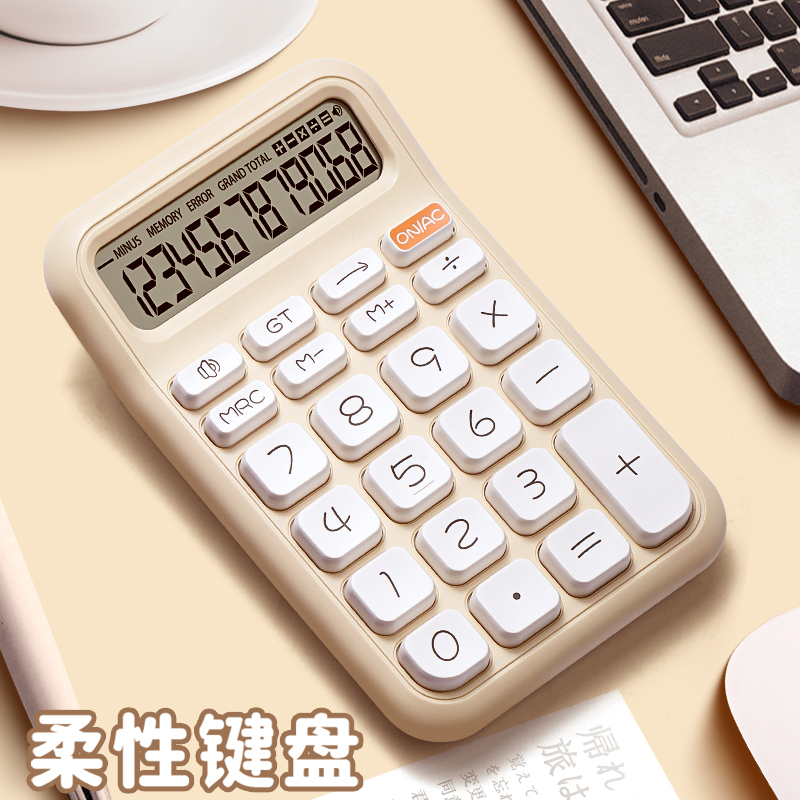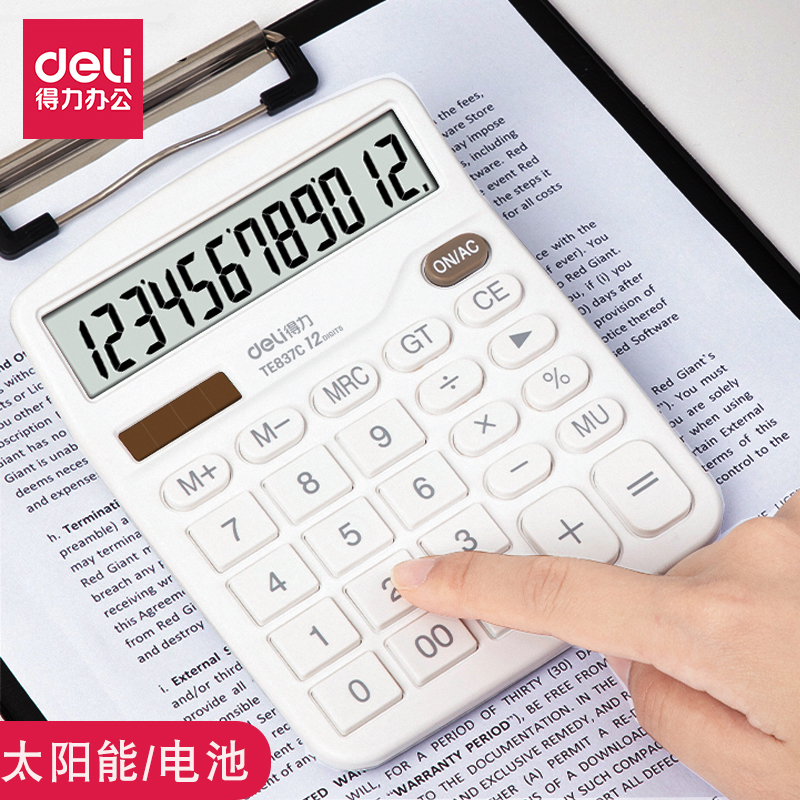"计算器使用技巧:轻松解决复杂计算"
女神内控
2024-10-22 14:24:50
0次
计算器使用技巧:轻松解决复杂计算
在我们日常生活和工作中,计算器已成为不可或缺的工具。无论是进行简单的加减乘除,还是复杂的科学计算,一个好的计算器都能帮助我们快速、准确地得出结果。然而,很多人可能并不清楚如何更高效地使用计算器。下面,我们将分享一些计算器使用技巧,帮助你轻松解决复杂计算。
一、选择合适的计算器
首先,选择一款适合自己的计算器非常重要。根据使用场景和需求,可以选择便携式手算器、电子计算器或手机自带的应用程序等。不同的计算器在功能、操作界面、准确性等方面有所不同,因此需要根据自身需求进行选择。
二、掌握基本操作
在开始使用计算器之前,我们需要先掌握其基本操作。这包括了解计算器的各个按键功能、如何输入数字和运算符、如何进行四则运算等。这些基本操作是使用计算器的基础,掌握后能让我们更加得心应手地运用计算器。
三、运用科学计算功能
很多高级计算器都具有科学计算功能,如指数、对数、三角函数等。这些功能可以解决很多复杂的科学计算问题。使用时,只需按照相应按键或输入公式即可轻松完成计算。因此,我们应该充分了解并运用这些功能,以提高工作效率。
四、巧用记忆功能
很多计算器具备记忆功能,可以存储之前的计算结果和运算过程。当遇到复杂的计算时,我们可以利用这个功能来减少重复的输入和计算,提高计算的准确性。比如,在进行多个步骤的复合运算时,可以先将中间结果保存在记忆中,然后再进行下一步的计算。
五、快速切换输入法
如果使用手机自带的应用程序进行计算,有时需要快速切换输入法。这时,可以设置常用的输入方式为快捷键,以便在需要时快速切换。这样不仅可以节省时间,还能提高计算的准确性。
六、避免错误输入
在输入数字和运算符时,一定要仔细核对,避免输入错误。一旦发现错误,应立即进行修改。同时,还要注意输入顺序和运算符的优先级,确保计算的准确性。
七、利用辅助工具
除了基本的计算功能外,很多计算器还配备了其他辅助工具,如单位换算、日期计算等。这些工具可以帮助我们解决一些与计算相关的问题。因此,我们应该充分利用这些辅助工具来提高工作效率。
八、定期清理和保养
无论是手算器还是电子计算器,都需要定期清理和保养。这可以确保其正常工作并延长使用寿命。定期清理可以去除灰尘和杂物;而保养则包括定期对设备进行检查和维护。此外,还应妥善保管好计算器,避免因意外造成的损坏。
翻译成英文为:
Calculator Use Skills: Easily Solve Complex Calculations
In our daily life and work, calculators have become indispensable tools. Whether performing simple addition, subtraction, multiplication, and division or complex scientific calculations, a good calculator can help us quickly and accurately obtain results. However, many people may not be aware of how to use a calculator more efficiently. Below, we will share some calculator usage tips to help you easily solve complex calculations.
Firstly, it is essential to choose a suitable calculator based on your usage scenario and needs. You can choose from portable handheld calculators, electronic calculators, or applications built into mobile phones. Different calculators vary in functionality, operating interface, and accuracy, so it is necessary to select one based on your needs.
Secondly, it is essential to master the basic operations of the calculator. This includes understanding the functions of each button on the calculator, how to input numbers and operators, and how to perform basic arithmetic operations. These basic operations are the foundation for using a calculator, and mastering them will allow you to use the calculator more proficiently. Thirdly, utilize the scientific calculation functions of many advanced calculators. These functions include exponentiation, logarithms, trigonometric functions, etc., which can solve many complex scientific calculation problems. By simply pressing the corresponding buttons or entering formulas, you can easily complete the calculations. Therefore, we should fully understand and utilize these functions to improve work efficiency. Fourthly, make clever use of memory functions on many calculators that can store previous calculation results and processes. When encountering complex calculations, we can use this function to reduce repeated input and calculations and improve calculation accuracy. For example, when performing multi-step compound calculations, you can first save the intermediate results in memory before moving to the next step of the calculation. Fifthly, quickly switch input methods. If you are using a mobile phone application for calculations, sometimes you need to quickly switch input methods. In this case, you can set up commonly used input methods as shortcuts for quick switching when needed. This can save time and improve calculation accuracy. Sixthly,相关内容
热门资讯
计算器故障排查与维修方法
本文介绍了计算器常见故障类型及排查、维修方法。包括显示屏不亮、按键失灵和计算结果不准确等问题的排查和...
校园生活的得力助手:科学计算器...
科学计算器在校园生活中至关重要,能进行数学运算、物理实验模拟和科学计算等。操作简单,可进行基本和高级...
"计算器历史回顾:从简单到智能...
计算器历史回顾:从简单机械到智能化的演变,经历了机械、电子及智能计算器时代,现已成为生活工作不可或缺...
计算器故障排查与维修技巧
本文介绍了计算器常见故障及原因,包括按键失灵、显示不清晰和无法开机等,并提供了相应的排查与维修技巧。...
计算器故障排查与修复指南
摘要:本文介绍计算器常见故障及修复指南,包括电源、外观、按键和计算结果等问题。排查步骤包括电源检查、...
计算器的发展历程与未来趋势
文章摘要:
计算器历经算盘、机械式和电子式发展,至现代已高度智能化和功能丰富。未来趋势包括更智能化...
历史上的计算器:从手算到电子化...
摘要:
本文回顾了计算器从手算到电子化的历史演变,包括手算时代、机械式计算器、电子计算器的诞生以及...
计算器故障排查与维修指南
本文提供了一份详细的计算器故障排查与维修指南,包括常见问题诊断、故障排查步骤、维修与保养及注意事项。...
探索计算器的隐藏功能与技巧
本文介绍了计算器的多种隐藏功能和技巧,包括基本型、智能手机及其他类型计算器的特性和使用技巧。掌握这些...
在线计算器:便捷的数字工具
在线计算器是便捷、准确的数字工具,可快速完成多种计算,具有便捷性、准确性、多功能、实时反馈和易操作性...



